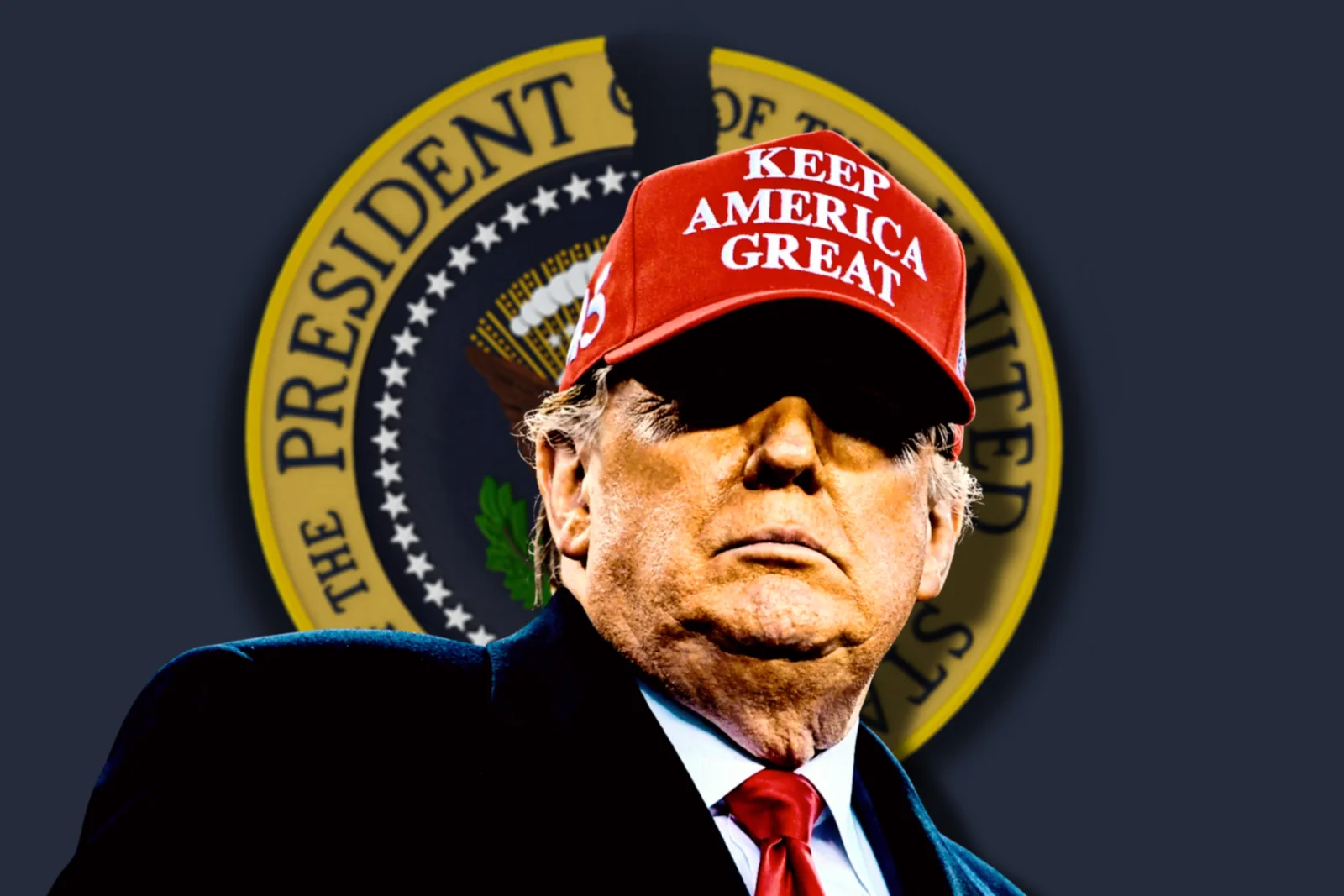
Politics
Will Trump Now Destroy America?
In the wake of a stunning election that propelled Donald Trump to a second term, America finds itself grappling with the unsettling possibility that the former president, and convicted felon, could undermine the very democratic structures upon which the country was built. With a sweeping victory over Vice President Kamala Harris across all seven battleground states, Trump is just months away from assuming what many see as nearly unchecked power, reinforced by Republican control of both the House and Senate and a conservative-majority judiciary.
At the heart of the public’s concern is the belief that Trump’s leadership style threatens democratic institutions, societal norms, and global stability. Critics argue that his combative approach, combined with a fierce demand for loyalty, has jeopardized the independence of crucial federal agencies like the Department of Justice and intelligence services. They warn that a second Trump term could entrench this trend, potentially compromising these institutions’ autonomy and increasing the influence of partisanship in areas intended to be politically neutral.
Trump’s history of attacks on the media and his political rivals suggests an inclination toward authoritarian practices, raising fears that democratic principles—such as freedom of the press—may be weakened or suppressed in his renewed administration.
Trump’s divisive rhetoric and stance on identity politics also amplify the sense of foreboding. Many Americans worry that his approach, especially regarding immigration, inflames social tensions and marginalizes minority communities. His critics argue that such rhetoric only deepens polarization and stirs discontent, making the nation more vulnerable to heightened social unrest. Economic and environmental experts have similar concerns, fearing that his agenda of deregulation and withdrawal from international climate accords could hinder progress on sustainability and economic resilience, both crucial for long-term national security and prosperity.
Internationally, Trump’s propensity for isolationist policies and alliances with authoritarian leaders, such as Russian President Vladimir Putin and North Korean leader Kim Jong-Un, presents an additional layer of anxiety. Many view his reluctance to uphold traditional alliances and preference for unilateral action as a threat to the post-WWII global order, one rooted in cooperative security and diplomacy. Democrats, and even many moderate Republicans, both in office and retired, caution that this shift could weaken America’s standing, embolden adversaries, and create a power vacuum in regions where stability relies on U.S. influence.
The possible implications of a second Trump presidency reach further still. Charlie Sykes, an American political commentator and former editor-in-chief of The Bulwark, warned of the potential for a sweeping transformation of federal agencies, possibly involving extensive purges of the federal workforce and radical immigration enforcement initiatives. He suggests that prominent allies such as Stephen Miller, Elon Musk, and Robert F. Kennedy Jr. might push forward controversial, even potentially unconstitutional, policy proposals. Sykes also raised the concern that Trump may pardon January 6th participants, remove prosecutors involved in his own legal investigations, and direct the Department of Justice to target his political enemies. The implications, some believe, could signal a chilling effect on the independence of America’s judiciary and law enforcement.
On MSNBC, Charlie Sykes writes, “There will be the inevitable and immediate attempts to downplay the well-established threat of a second Donald Trump presidency. But this time we need to take Trump both seriously and literally. This includes preparing for the possibility of him initiating a massive purge of the federal workforce and the process of mass deportations. Stephen Miller, Elon Musk and Robert F. Kennedy Jr. will likely begin trying to implement their variously damaging and possibly unconstitutional ideas.”
Sykes further warns, “We can expect Trump will pardon the Jan. 6 rioters and summarily fire the prosecutors who tried to hold him accountable. Having been immunized by the Supreme Court, he may instruct the Department of Justice to go after his political opponents. He will likely abandon Ukraine and begin the process of weakening our alliances. A newly empowered Trump can, if he wishes, go about trying to gut or kill Obamacare outright, while also trying to impose massive new tariffs on the economy. We also know that the guardrails will not be sufficient, because they were not before. If they had been, none of this would have happened. Neither the impeachment process nor the justice system blocked his return to power. And now the ultimate guardrail has failed.”
Outside the U.S., Trump’s potential policy shifts evoke equally profound unease. His critics fear he could abruptly abandon Ukraine, neglect the Israeli-Palestinian conflict, or give Israeli Prime Minister Benjamin Netanyahu carte blanche to do as he wishes in Gaza, and weaken alliances across Europe, Asia, and Africa. During his campaign, he confidently claimed he could end Russia’s war in Ukraine within 24 hours, a declaration met with skepticism but one that nonetheless raises questions about his approach to foreign policy. Many Americans are left to wonder: will Trump follow through on his ambitious—and often controversial—pledges once he reenters office?
However, it’s worth considering the lessons of his first term. Though Trump’s administration brought profound challenges and upheaval, American institutions held firm against the storms. His initial presidency underscored the resilience of U.S. democracy. While a second term allows him greater freedom, unburdened by the need for reelection, many argue that the democratic framework has weathered these pressures before and will likely endure again.
Trump’s administration, like any presidency, is likely to be tempered by advisors, some offering sound counsel and others encouraging more extreme positions. While he will likely advance a Republican agenda that angers many Democrats, it is improbable that he will fundamentally dismantle American democracy. As with every transition, the nation will brace for political friction, but at the end of Trump’s four-year term, the United States will remain—ready to welcome another round of democratic elections and the smooth transfer of power that defines its governance.
